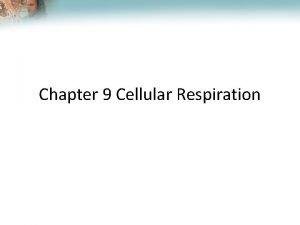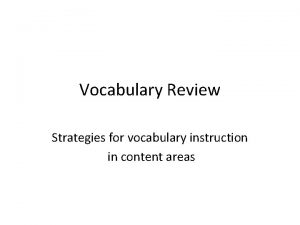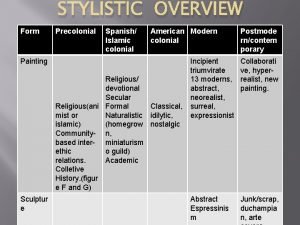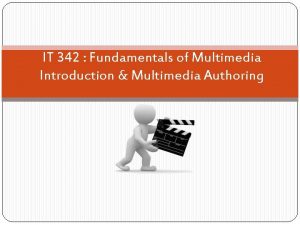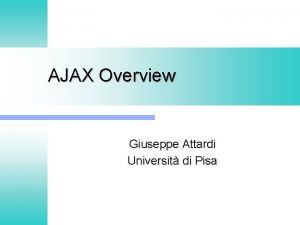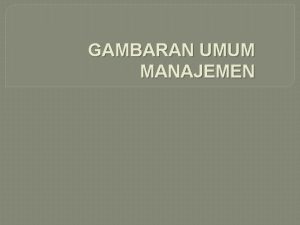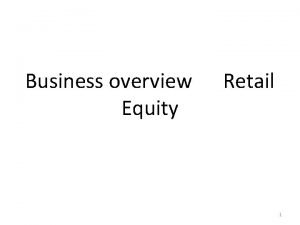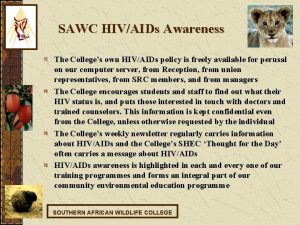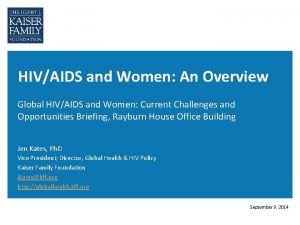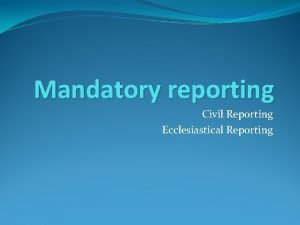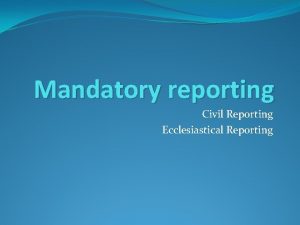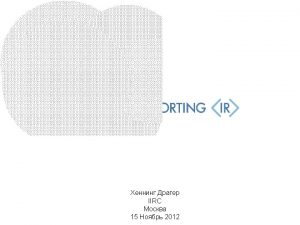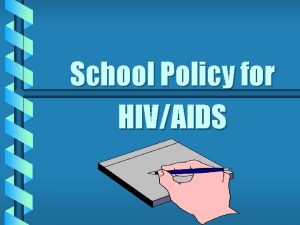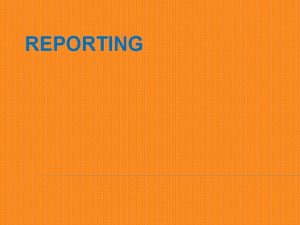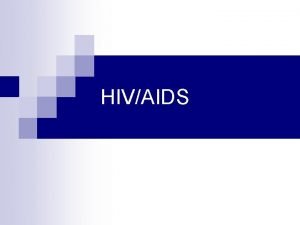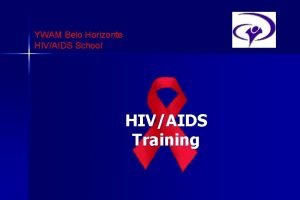Policy on HIVAids reporting 1 Overview HIVAids as

















- Slides: 17

Policy on HIV/Aids reporting.

1) Overview. HIV/Aids as a national crisis n Stigmas and stereotypes attached to the disease n Responsibilty of the national media n

Oppurtunities for the media n Generation of public discussion n Transforming public attitudes towards HIV/Aids and people n Affect language of HIV/Aids n However n Journalists are not spokespersons n Journalists are not health educators

2) Current HIV/Aids coverage. n Effect of stereotypes n Effect of Aids dissidents debate n Effect of scientific/medical aspects n Economic aspects of news n Treatment of journalists among NGO’s/ scientists/government n Skew of HIV/Aids info in the news

Current HIV/Aids coverage. n Journalists need more interaction with communities n Current edeavours are too shallow n Prevalence of white denial/ignorance

3) Suggestions for HIV/Aids reporting. n Sources: • • • • Aids consortium: www. aidsconsortium. org. za African Women’s Media Centre www. awme. com Aids education Global information system: www. aegis. com Health-e news agency www. health-e. org. za Public service accountability: www. psam. org. za Churches in G. town Louise Vale: Managing director of Grocott’s mail Student HIV/AIDS Resistance Campaign (SHARC) Sister Val Donnachie at the Rhodes University Sanatorium Jabu Van Niekerk at the Raphael Centre. Rhodes University style guide 2003. HIV/Aids: A resource for journalists Centre for HIV/Aids development research and evaluation: www. cadre. org. za

Broad guidelines n HIV/Aids needs to be portrayed as a matter of national security n Journalists need to understand medical aspects of the disease n Possibility of training programs for journalists n Development of a contact/resource base

Broad guidelines n Development of networking with HIV/Aids organisations n Advocate openness about HIV/Aids and sex n Need for localised statistics. n Possible addition of wellness supplement. n Expansion of beats to include HIV/Aids

Ethical Considerations n Rights of people living with HIV/Aids – Privacy and confidentiality protected by the constitution. – HIV status of an individual is private unless otherwise stated. – Name or photograph of an individual with HIV should not be published without that persons’ express consent.

Ethical Considerations n Issues for journalists when obtaining informed consent. – To clearly identify themselves – To state the purpose, context and possible ramifications of the coverage. – Ensure they have disclosed their status to their partners and families.

Ethical Considerations n Exceptions to the right of privacy. n The rights of children infected or affected by HIV/Aids – Journalists should consider children’s vulnerability in society. – Consent should involve child’s guardian/carer/adult

Issues that need to covered. n Sexual abstinence as an option n Male attitudes toward women and sex n Empowerment of women n Question of employment n Publicity for community HIV/Aids services and support groups. n De-stigmatizing

Specific guidelines for HIV/Aids reporting n n n n HIV is the virus that causes Aids. It is important to recognise this distinction. Avoid stigmas and assumptions Avoid “Aids victims”/ “Aids sufferers” Avoid cliché’s : e. g. . “full blown Aids” Avoid sensationalism and war metaphors. HIV is an epidemic not a scourge or plague. CD 4 cell count test is preferred to “Aids test”

Specific guidelines for HIV/Aids reporting n Contract HIV is preferred to “catch HIV” n “Innocent” is a word which suggests someone else is guilty and it should be avoided. No one with HIV/Aids deserves or chooses to contract it. n “Sex worker” is preferred to “prostitute”

Rights and responsibilities of journalists reporting on HIV/Aids Access to information is guaranteed constitutionally. n Duties of journalist to society in terms of advocacy journalism. n Accuracy should always be ensured: by keeping informed of current information concerning HIV/Aids n Informed reporting should be provided by including contexts: e. g. when using statistics. n

Rights and responsibilities of journalists reporting on HIV/Aids n Diversity of sources should be maintained and non-discrimination upheld at all times. n Scepticism is useful when reporting claims by government, service organisations and “cures”.

Some valuable resources for journalists. - Love life: www. lovelife. org. za - African Women’s Media Centre www. awme. com - Aids law project: www. hri. ca/partner. alp Heywoodm@law. wits. ac. za - Treatment action campaign: www tac. org. za/Info@tac. org. za - Raphael Centre - HIV/Aids: A Resource for Journalists - Centre for HIV/Aids development research and evaluation: www. cadre. org. za - Soul city: www. soulcity. org. za
 Chapter 12 selling overview
Chapter 12 selling overview Aerobic respiration overview
Aerobic respiration overview Vocabulary overview guide
Vocabulary overview guide British school system presentation
British school system presentation Financial intermediaries
Financial intermediaries 2 peter overview
2 peter overview Overview of oracle architecture
Overview of oracle architecture Stylistic overview of painting
Stylistic overview of painting Overview of multimedia software tools
Overview of multimedia software tools Max 10 overview
Max 10 overview Oedipus rex by sophocles summary
Oedipus rex by sophocles summary Ajax
Ajax Management overview
Management overview Industry analysis of apple
Industry analysis of apple Department overview template
Department overview template Overview funding programmes
Overview funding programmes Amway business overview
Amway business overview Distributed systems overview
Distributed systems overview

